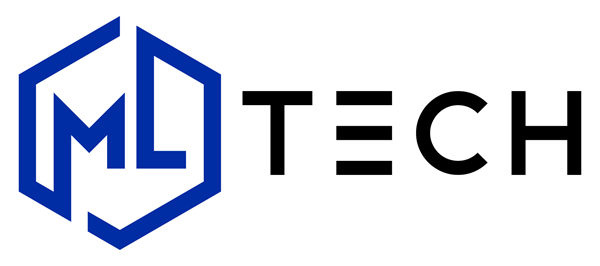| 后台-系统设置-扩展变量-手机广告位-内容正文顶部 |
− Elritercept is a late-stage, potentially best-in-class activin inhibitor designed to treat anemia associated with certain hematologic cancers, including myelodysplastic syndromes and myelofibrosis
− Takeda to receive exclusive global license in all territories outside of mainland China, Hong Kong and Macau
− Transaction builds upon Takeda’s legacy in the treatment of hematologic cancers and advances company’s global oncology strategy
OSAKA, Japan & CAMBRIDGE, Mass. -- (BUSINESS WIRE) --
Takeda (TSE:4502/NYSE:TAK) today announced that it has entered into an exclusive licensing agreement with Keros Therapeutics, Inc. (Nasdaq: KROS) to further develop, manufacture and commercialize elritercept worldwide outside of mainland China, Hong Kong and Macau.
Elritercept is a late-stage investigational activin inhibitor designed to treat anemia associated with certain hematologic cancers, including myelodysplastic syndromes (MDS) and myelofibrosis (MF). The U.S. Food and Drug Administration (FDA) has granted Fast Track designation for the development of elritercept for very low-, low- and intermediate-risk MDS. MDS and MF are characterized by inadequate blood cell production, often leading to severe anemia that significantly impacts patient health and quality of life. Elritercept targets activin A and B proteins, which are believed to play a crucial role in anemia-associated diseases. In early clinical studies, elritercept has shown promising clinical activity and a manageable safety profile in patients with very low-, low- and intermediate-risk MDS as a monotherapy and in patients with MF in combination with standard of care.
“Elritercept has the potential to make a meaningful difference for patients with blood cancers, one of our key areas of strategic focus,” said Teresa Bitetti, President of the Global Oncology Business Unit at Takeda. “The addition of elritercept further bolsters our oncology pipeline and introduces a potential future growth driver for Takeda. I am excited to further advance the pioneering work begun by the Keros Therapeutics team with the goal of delivering this potential treatment option to patients.”
Elritercept is currently in two ongoing Phase 2 clinical trials; one in patients with very low-, low- or intermediate-risk MDS and one in patients with MF. The Phase 3 RENEW trial evaluating elritercept in adult patients with transfusion-dependent anemia with very low-, low- or intermediate-risk MDS will begin enrollment soon. Takeda plans to evaluate elritercept in these cancers across patient segments and lines of therapy.
“We are excited to partner with Takeda, whose global reach and expertise in oncology and hematology will help unlock elritercept’s potential for patients with MDS and MF,” said Jasbir S. Seehra, Ph.D., Chair and Chief Executive Officer at Keros Therapeutics. “With a differentiated mechanism of action targeting a broad range of pathways in blood cell production, elritercept has shown promise for patients who have not responded to standard therapies. This collaboration will accelerate development of elritercept for patients in need and offer new insights into these complex hematologic conditions.”
Under the terms of the agreement, Takeda will receive an exclusive worldwide license to further develop, manufacture and commercialize elritercept in all indications and territories outside of mainland China, Hong Kong and Macau. Takeda will be responsible for all development, manufacturing and commercialization as of the effective date of the agreement. Takeda will provide Keros Therapeutics with an upfront payment of $200 million and potential payments relating to regulatory, development and commercial sales milestones, as well as royalties on net sales. The agreement is subject to customary closing conditions, including completion of antitrust reviews.
About Myelodysplastic Syndromes (MDS)
Myelodysplastic syndromes (MDS) are a group of diverse blood cancers in which the bone marrow fails to produce enough healthy blood cells. MDS is among the most common hematologic malignancies, with approximately 20,000 new cases diagnosed annually in the United States.1 Most people with MDS experience anemia, or low red blood cell counts, which impacts quality of life and mortality.2 75% of people living with MDS have low-risk MDS, with a median survival of approximately three to 10 years.3,4 Many low-risk MDS patients require frequent red blood cell transfusions, which can increase over time and negatively impact quality of life.5 Despite advances, additional therapeutic options are needed to improve quality of life and anemia symptoms for patients with low-risk MDS, particularly those whose disease is ringed sideroblast-negative or who have a high transfusion need.
About Myelofibrosis (MF)
Myelofibrosis (MF) is a rare and life-threatening blood cancer characterized by the buildup of scar tissue in the bone marrow, which impairs its ability to produce normal blood cells. In the United States, approximately 3,000 new cases of MF are diagnosed each year.6 Patients with MF often experience anemia, enlarged spleen and other symptoms that significantly affect their quality of life. Although standard treatments can reduce spleen size and improve symptoms, they may exacerbate anemia and lead to low platelet counts.
About Elritercept
Elritercept is an investigational, potentially best-in-class activin inhibitor, targeting both activin A and activin B proteins, which are believed to play a crucial role in anemia-associated diseases. Elritercept is currently in two ongoing Phase 2 clinical trials; one in patients with very low-, low- or intermediate-risk MDS and one in patients with MF. The Phase 3 RENEW trial evaluating elritercept in adult patients with transfusion-dependent anemia with very low-, low- or intermediate-risk MDS will begin enrollment soon. The U.S. Food and Drug Administration (FDA) has granted Fast Track designation for the development of elritercept for this condition.
About Takeda
Takeda is focused on creating better health for people and a brighter future for the world. We aim to discover and deliver life-transforming treatments in our core therapeutic and business areas, including gastrointestinal and inflammation, rare diseases, plasma-derived therapies, oncology, neuroscience and vaccines. Together with our partners, we aim to improve the patient experience and advance a new frontier of treatment options through our dynamic and diverse pipeline. As a leading values-based, R&D-driven biopharmaceutical company headquartered in Japan, we are guided by our commitment to patients, our people and the planet. Our employees in approximately 80 countries and regions are driven by our purpose and are grounded in the values that have defined us for more than two centuries. For more information, visit www.takeda.com.
Important Notice
For the purposes of this notice, “press release” means this document, any oral presentation, any question and answer session and any written or oral material discussed or distributed by Takeda Pharmaceutical Company Limited (“Takeda”) regarding this release. This press release (including any oral briefing and any question-and-answer in connection with it) is not intended to, and does not constitute, represent or form part of any offer, invitation or solicitation of any offer to purchase, otherwise acquire, subscribe for, exchange, sell or otherwise dispose of, any securities or the solicitation of any vote or approval in any jurisdiction. No shares or other securities are being offered to the public by means of this press release. No offering of securities shall be made in the United States except pursuant to registration under the U.S. Securities Act of 1933, as amended, or an exemption therefrom. This press release is being given (together with any further information which may be provided to the recipient) on the condition that it is for use by the recipient for information purposes only (and not for the evaluation of any investment, acquisition, disposal or any other transaction). Any failure to comply with these restrictions may constitute a violation of applicable securities laws.
The companies in which Takeda directly and indirectly owns investments are separate entities. In this press release, “Takeda” is sometimes used for convenience where references are made to Takeda and its subsidiaries in general. Likewise, the words “we”, “us” and “our” are also used to refer to subsidiaries in general or to those who work for them. These expressions are also used where no useful purpose is served by identifying the particular company or companies.
Forward-Looking Statements
This press release and any materials distributed in connection with this press release may contain forward-looking statements, beliefs or opinions regarding Takeda’s future business, future position and results of operations, including estimates, forecasts, targets and plans for Takeda. Without limitation, forward-looking statements often include words such as “targets”, “plans”, “believes”, “hopes”, “continues”, “expects”, “aims”, “intends”, “ensures”, “will”, “may”, “should”, “would”, “could”, “anticipates”, “estimates”, “projects” or similar expressions or the negative thereof. These forward-looking statements are based on assumptions about many important factors, including the following, which could cause actual results to differ materially from those expressed or implied by the forward-looking statements: the economic circumstances surrounding Takeda’s global business, including general economic conditions in Japan and the United States; competitive pressures and developments; changes to applicable laws and regulations, including global health care reforms; challenges inherent in new product development, including uncertainty of clinical success and decisions of regulatory authorities and the timing thereof; uncertainty of commercial success for new and existing products; manufacturing difficulties or delays; fluctuations in interest and currency exchange rates; claims or concerns regarding the safety or efficacy of marketed products or product candidates; the impact of health crises, like the novel coronavirus pandemic, on Takeda and its customers and suppliers, including foreign governments in countries in which Takeda operates, or on other facets of its business; the timing and impact of post-merger integration efforts with acquired companies; the ability to divest assets that are not core to Takeda’s operations and the timing of any such divestment(s); and other factors identified in Takeda’s most recent Annual Report on Form 20-F and Takeda’s other reports filed with the U.S. Securities and Exchange Commission, available on Takeda’s website at: https://www.takeda.com/investors/sec-filings-and-security-reports/ or at www.sec.gov. Takeda does not undertake to update any of the forward-looking statements contained in this press release or any other forward-looking statements it may make, except as required by law or stock exchange rule. Past performance is not an indicator of future results and the results or statements of Takeda in this press release may not be indicative of, and are not an estimate, forecast, guarantee or projection of Takeda’s future results.
Medical Information
This press release contains information about products that may not be available in all countries, or may be available under different trademarks, for different indications, in different dosages, or in different strengths. Nothing contained herein should be considered a solicitation, promotion or advertisement for any prescription drugs including the ones under development.
References:
- Gorak E, et al. Discordant pathologic diagnoses of myelodysplastic neoplasms and their implications for registries and therapies. Blood Adv. 2023 Oct 24;7(20):6120-6129. doi: 10.1182/bloodadvances.2023010061.
- Haring Y, et al. MDS-Related Anemia Is Associated with Impaired Quality of Life but Improvement Is Not Always Achieved by Increased Hemoglobin Level. J Clin Med. 2023 Sep 9;12(18):5865. doi: 10.3390/jcm12185865.
- de Witte T, et al. Novel dynamic outcome indicators and clinical endpoints in myelodysplastic syndrome: The European LeukemiaNet MDS Registry and MDS-RIGHT project perspective. Haematologica. 2020 Nov 1;105(11):2516-2523. doi: 10.3324/haematol.2020.266817.
- Sekeres M, et al. Diagnosis and Treatment of Myelodysplastic Syndromes: A Review. JAMA. 2022 Sep 6;328(9):872-880. doi: 10.1001/jama.2022.14578.
- Wood E, et al. Outpatient transfusions for myelodysplastic syndromes. Hematology Am Soc Hematol Educ Program. 2020 Dec 4;2020(1):167-174. doi: 10.1182/hematology.2020000103.
- Mehta J, et al. Epidemiology of myeloproliferative neoplasms in the United States. Leuk Lymphoma. 2014 Mar;55(3):595-600. doi: 10.3109/10428194.2013.813500. Epub 2013 Jul 29.



